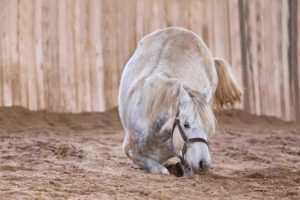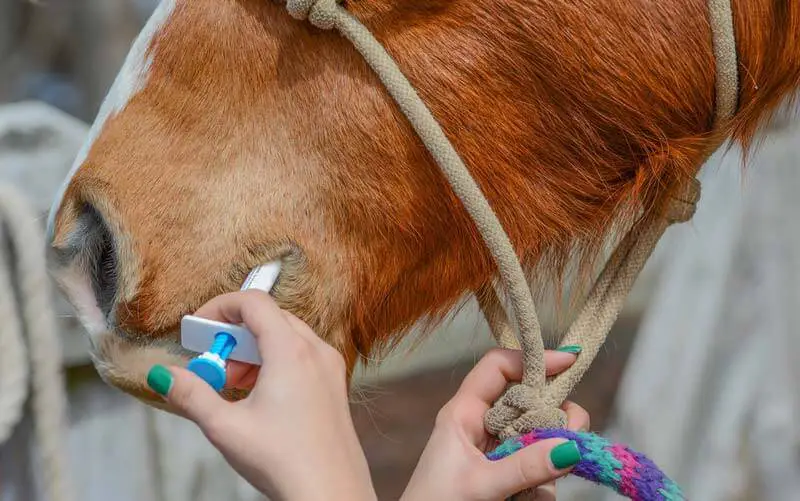Can worming my horse cause colic?

While some horses have experienced a colic episode post-worming, it’s not the result of worming itself. In most instances, colic occurs 12 hours after worming when damage has already been done by parasites or in horses that haven’t been wormed regularly.
To understand why this correlation has been drawn, let’s examine this issue closer.
There are two types of colic that have become associated with worming. These are impaction colic and gas, or spasmodic, colic. While these types of colic have been linked to worming by horse owners, the true culprits are roundworms and tapeworms.
How do roundworms cause colic?
Roundworms reside in the small intestine. When a horse is wormed, roundworms are killed which, in large numbers, can become an obstruction within the small intestine, leading to impaction colic. This scenario most often affects young horses or those that haven’t been de-wormed regularly.
How do tapeworms cause colic?
Tapeworms cause damage to the intestine and cecum of horses prior to worming. These parasites have been linked to both impaction colic and gas colic. But, most often, this is due to the damage that’s already been done.
How do I avoid colic?
While some horse owners have concerns about colic post-worming, regular worming is vital to your horse’s long-term digestive health. Without routine worming, the health risks associated with parasites are high and any type of parasite can cause colic if not controlled.
Your veterinarian will be able to assist you in developing a worming program for your horses. If your horse hasn’t been wormed recently, speak with your veterinarian. They may advise to give a particular product to kill the worms in stages, the follow up with another product 2 weeks later in certain circumstances. N.B. Never give your horse half a dose of wormer, as this promotes resistant worms.



